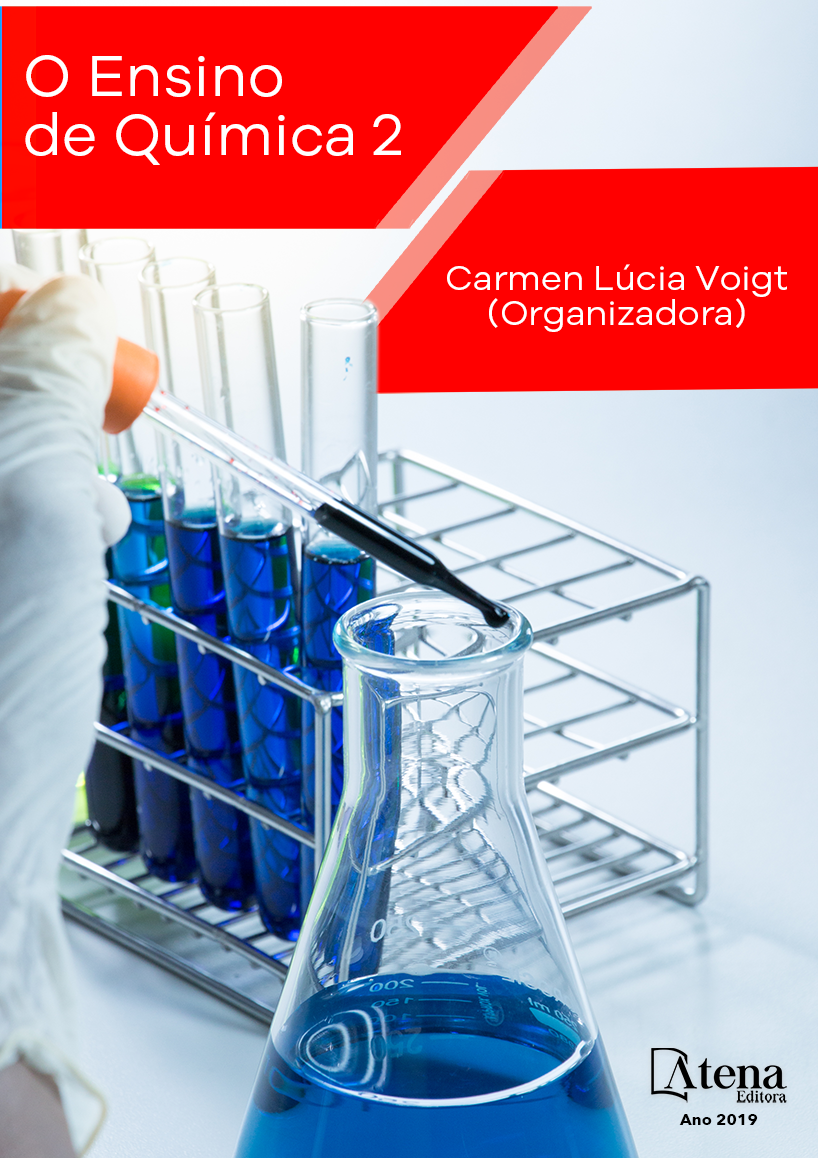
O ENSINO DE QUÍMICA A PARTIR DO DIÁLOGO NA CONSTRUÇÃO DE JOGOS DIDÁTICOS E A SAÚDE INDÍGENA GUARANI E KAIOWÁ
O PIBID Diversidade é um Programa
Institucional de Bolsa de Iniciação à Docência
que privilegia a atuação de acadêmicos
indígenas nas escolas indígenas, potencializou
a construção de um jogo didático como uma
estratégia metodológica de ensino na área
de Ciência da Natureza e Matemática numa
abordagem problematizadora caracterizando
a pesquisa qualitativa. A obra de Paulo Freire
conhecida como Pedagogia do Oprimido foi
referencial teórico, visto que a comunidade
indígena valoriza aspectos da cultura tradicional
como ponto de partida para o processo de
ensino e aprendizagem. A problematização de
temas científicos ligados à saúde indígena,
possibilitou o Ensino de Química a partir de
temas como a reciclagem e plantas medicinais
que foram trabalhadas, visto que muitas
vezes são considerados como “difíceis” pelos
indígenas. Isso porque em alguns casos, não
são identificados na língua guarani e kaiowá.
Neste viés é necessária uma aproximação
de sinônimos do termo científico que estejam
ligados à realidade da comunidade guarani
e kaiowá como forma de esclarecê-los..
Esse processo de problematização resgata
a dialogicidade durante a construção do
jogo didático, auxiliando assim na formação
acadêmica dos pibidianos sobre as habilidades
crítica e auto crítica do conhecimento científico.
A dinâmica de Alternância foi fortalecida pelo
viés Universidade e Escola/Comunidade
Indígena, direcionando os Educadores
da Licenciatura Indígena numa proposta
educacional problematizada para ensinar não
somente a Química, como também a Física, a
Matemática e a Biologia e suas especificidades
proporcionando a emancipação humana
intelectual e físico desses povos tradicionais e
seus saberes na promoção da coletividade na
escola indígena.
O ENSINO DE QUÍMICA A PARTIR DO DIÁLOGO NA CONSTRUÇÃO DE JOGOS DIDÁTICOS E A SAÚDE INDÍGENA GUARANI E KAIOWÁ
-
DOI: ensino de ciências, jogos didáticos, dialogicidade, saúde indígena.
-
Palavras-chave: 10.22533/at.ed.9061926046
-
Keywords: didactic game, science teaching, dialogicity, indigenous health.
-
Abstract:
PIBID Diversity is an Institutional Scholarship Initiative Program that
privileges indigenous academics in the process of teaching and learning during the
teaching internship in indigenous schools. In this context, it was applied the construction
of a didactic game as a methodological strategy of teaching in the area of Science
of Nature and Mathematics in the indigenous school, in a problematizing approach
characterizing the qualitative research. This proposal is based on the work of Paulo
Freire, known as Pedagogy of the Oppressed, since the indigenous school community
values aspects of traditional culture as a starting point for the teaching and learning
process. In order to problematize some themes present in the Teaching of Chemistry,
the approach of the subject of recycling and medicinal plants were worked out directing
the problematization of specific terms of Chemistry, which are often considered as
“difficult” by the Indians. This is because in some cases, they are not identified in the
Guarani and Kaiowá languages. In this line is necessary an approximation of synonyms
of the scientific term that are linked to the reality of the community as a way to clarify
them. The relationship between the traditional knowledge about some medicinal plants
applied as a home remedy in the communities, a very common practice to improve
indigenous health, made possible the reflections in the classroom. This process of
problematization rescues the dialogicity, mentioned in the work of Paulo Freire, during
the construction of the didactic game, thus aiding in the academic formation of the
pibidianos on the critical and self-critical abilities of scientific knowledge. In this case,
the theoretical contribution of Paulo Freire comes from the alternation dynamics
strengthening the University and School / Indigenous Community line, directing the
Educators of the Indigenous Licenciatura in an educational proposal problematized to
teach not only Chemistry but also Physics, Mathematics and Biology and its specificities
providing the human intellectual and physical emancipation of these traditional peoples
and their knowledge in the promotion of collective actions in the indigenous school.
-
Número de páginas: 15
- Elâine da Silva Ladeia
- Eliel Benites
- Diane Cristina Araújo Domingos


